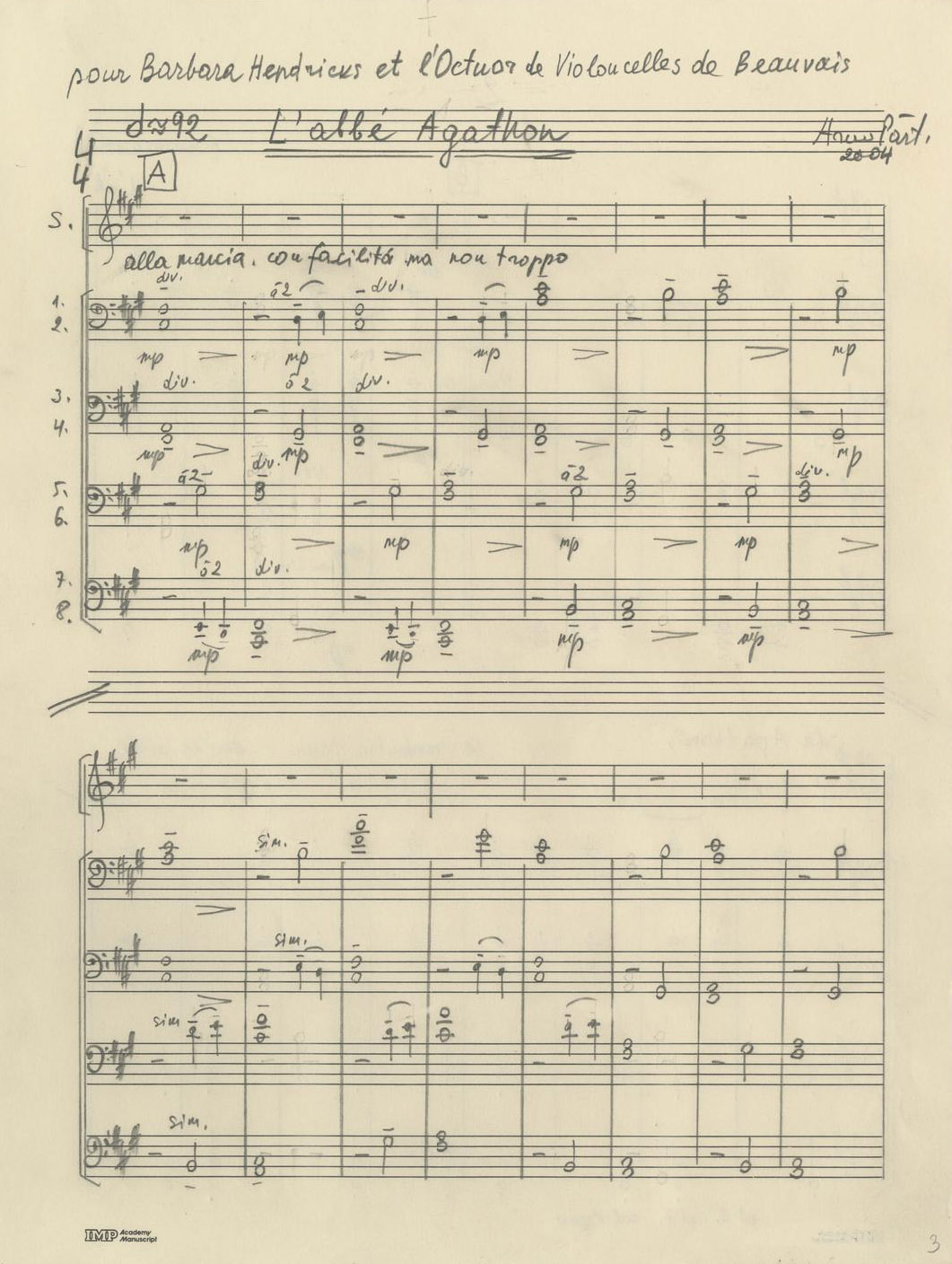Scored for
Duration
15 min
Short description
Composed for soprano and eight violoncellos, L’abbé Agathon is inspired by Maladrerie Saint-Lazare, one the oldest leper hospital in Europe. The remains of the hospital, dating from the 12th century, lie close to Beauvais. Pärt came across a 4th century legend concerning Agathon in a book of stories about the Desert Fathers that describes the life of Christian monks in the deserts of Egypt. The legend tells us of the meeting between the hermit Agathon and a leper who tested Agathon several times. Only after these trials, the leper revealed himself as an angel sent by God.
Arvo Pärt: “St. Agathon is associated with several legends involving lepers. One of the best-known says that Agathon’s love was so great that he was willing to exchange his body with that of a leper.…
World premiere
Concert-performance: "Der Weg". Azione sacra auf Musik von Arvo Pärt
Camerata Salzburg (4 violas and 4 cellos), Erwin Ortner (conductor), Berit Barfred-Jensen (soprano)
Completion year
Original version
Scored for
Duration
Publishers
Language
Vocal text
L’abbé Agathon, se rendant un jour dans la ville pour vendre de menus objets, trouva le long de la route un lépreux qui lui demanda: “Où vas-tu?”
L’abbé Agathon lui dit: “A la ville vendre des objets.”
Le lépreux lui dit: “Par charité, porte-moi là-bas.” L’ayant pris, le vieillard le porta à la ville.
L’autre lui dit alors: “Dépose-moi à l’endroit où tu vends tes objets.” Et l’abbé Agathon fit ainsi. Quand il eut vendu un objet, le lépreux lui demanda: “Combien l’as-tu vendu?”
“Tant.”
“Achète-moi un gâteau.” Il l’acheta. Quand il eut vendu un autre objet, l’autre lui dit: “Et celui-ci, combien l’as-tu vendu?”
“Tant.”
“Achète-moi telle chose.” Le vieillard l’acheta encore. Quand il eut vendu tous ses objets et qu’il voulut partir, le lépreux lui dit: “Tu t’en vas?”
“Oui.”
“Je t’en prie, par charité, reporte-moi à l’endroit où tu m’as trouvé.” L’abbé Agathon prit le lépreu…
